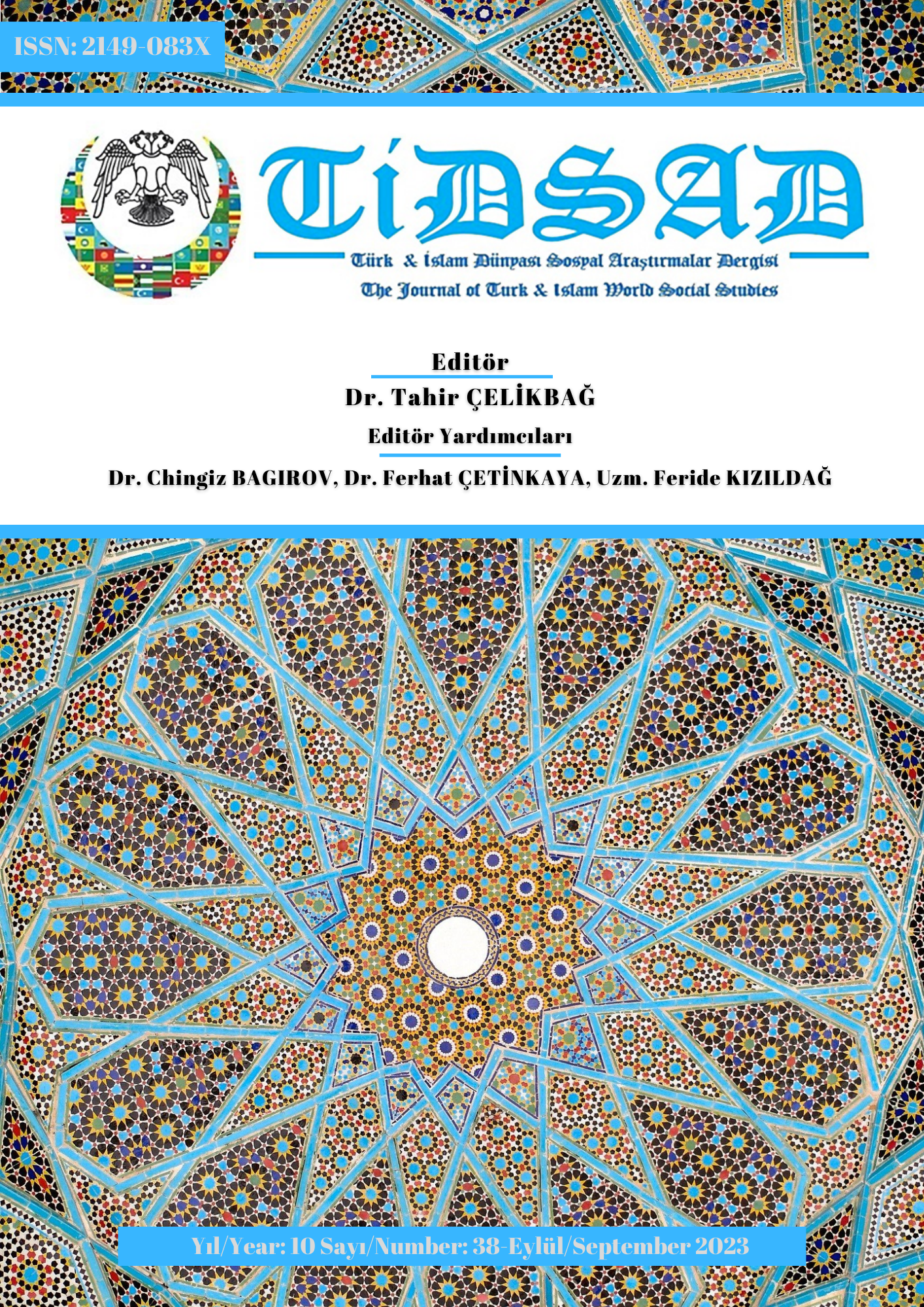Author :
Abstract
İnsan, dünyaya geldiği sosyal ve kültürel bir çevre olan ailede dil, din, ahlak, hukuk, gelenek, görenek gibi hayatın türlü anlayış, yaşayış birimlerini ve alışkanlıklarını hazır olarak bulur. O bunları, hayatın akışı içinde ve erken dönemde farkına varmadan içselleştirerek kabul eder. Aslında çocuk uyum sağlama (adaptation) ve alışkanlık kazanma kabiliyetine ve eğilimine sahip olduğundan aynı şekilde dinî normlara uymaya da ruhen elverişidir. Onun içindir ki çocuğun kendi ailesinin, sosyal çevresinin ve kültürünün dinî ile de karşılaşması ve zamanla yetişkinlerden aldıkları dinî inançları bireysel, ruhsal yapılarına göre işleyip değiştirerek kendine has bir din anlayışı ve yaşayışı geliştirmesi doğaldır. Bu bağlamda çalışma da yetişkin dini kimliğinin oluşumunda gelenek aktarıcıların rolü incelenmiştir. Bu bağlamda 2021-2022 yılları arasında 25-75 yaş arası 60 katılımcı ile görüşmeler yapılmıştır. Amaçlı örneklem yöntemi ile seçilen katılımcılara konu kapsamında yarı yapılandırılmış sorular hazırlanmıştır. Görüşmeler 40 ile 160 dakika arası sürmüş ve yüz yüze gerçekleştirilmiştir. Verilerin analizinde MAXQDA 12 paket programından yararlanılmıştır. Bu noktada araştırmamızda “Bireyin çocukluk dönemi yaşantıları onun yetişkinlik dönemindeki dini tutum ve davranışlarını nasıl ve ne yönde etkilemektedir?” sorusuna araştırma bulguları çerçevesinde cevap aranmaktadır. Rol kuramının temel yaklaşımlarından hareket eden çalışma sonucunda elde edilen bulgulardan hareketle bireyin dini kimliğinin inşasında gelenek aktarıcıların önemli rolü olduğu tespit edilmiştir.
Keywords
Abstract
In the family, which is a social and cultural environment in which a person is born, he finds various understandings, living units and habits of life such as language, religion, morality, law, tradition and customs. He accepts these by internalizing them in the course of life and without realizing it in the early period. In fact, since the child has the ability and tendency to adapt and acquire habits, he is also spiritually fit to comply with religious norms. Therefore, it is natural for the child to encounter the religion of his/her own family, social environment and culture, and over time, to develop a unique understanding and lifestyle of religion by processing and changing the religious beliefs they receive from adults according to their individual, spiritual structures. In this context, the role of tradition transmitters in the formation of adult religious identity was examined in the study. In this context, interviews were held with 60 participants aged 25-75 between 2021-2022. Semi-structured questions were prepared within the scope of the subject for the participants selected with the purposeful sampling method. Interviews were conducted face to face, lasting between 40 and 160 minutes. MAXQDA 12 package program was used to analyze the data. At this point, our research asks, "How and in what direction do an individual's childhood experiences affect his or her religious attitudes and behaviors in adulthood?" The answer to the question is sought within the framework of the research findings. Based on the findings obtained as a result of the study, which is based on the basic approaches of role theory, it has been determined that tradition transmitters have an important role in the construction of the religious identity of the individual.





